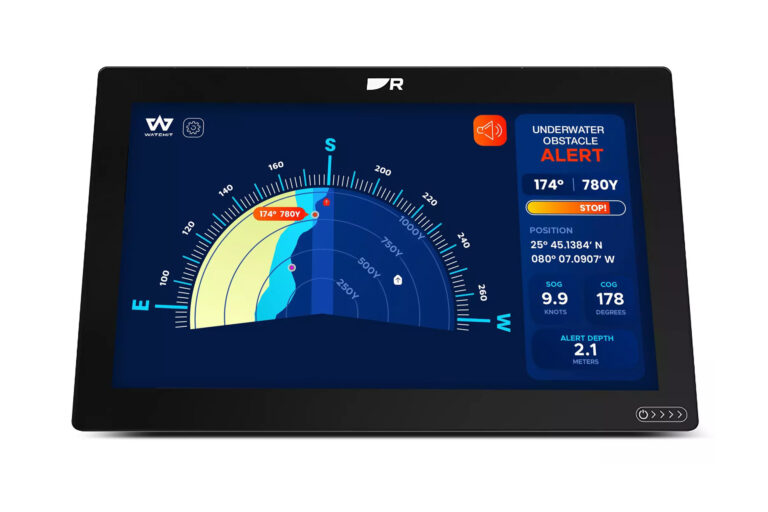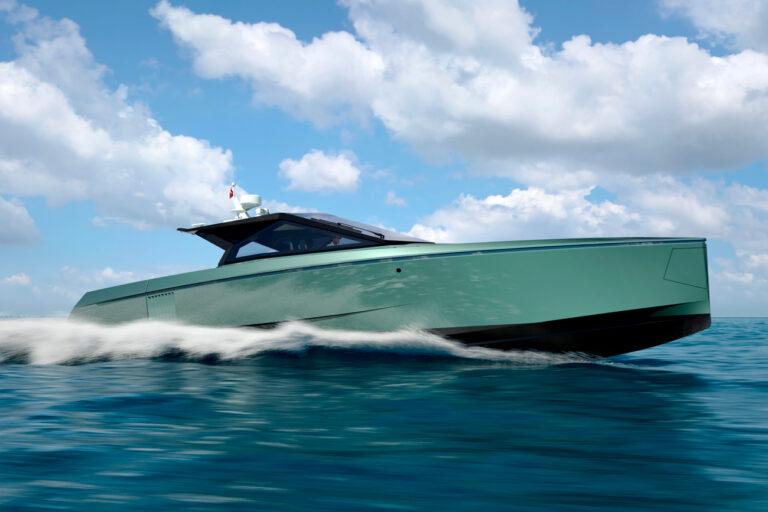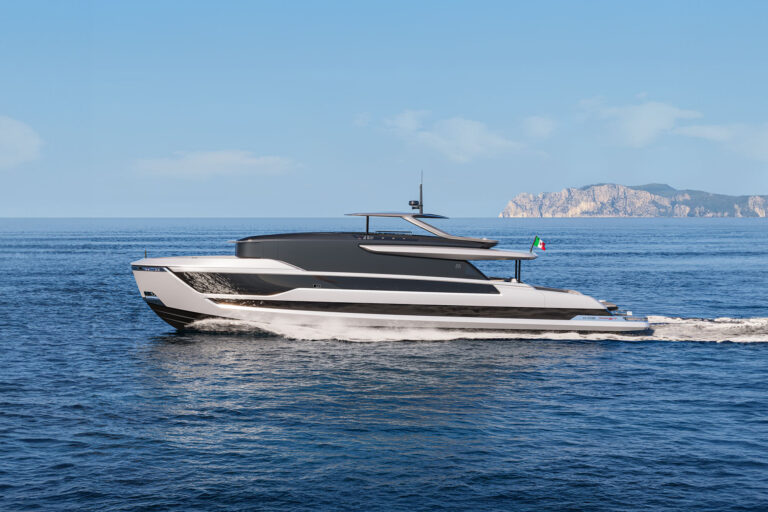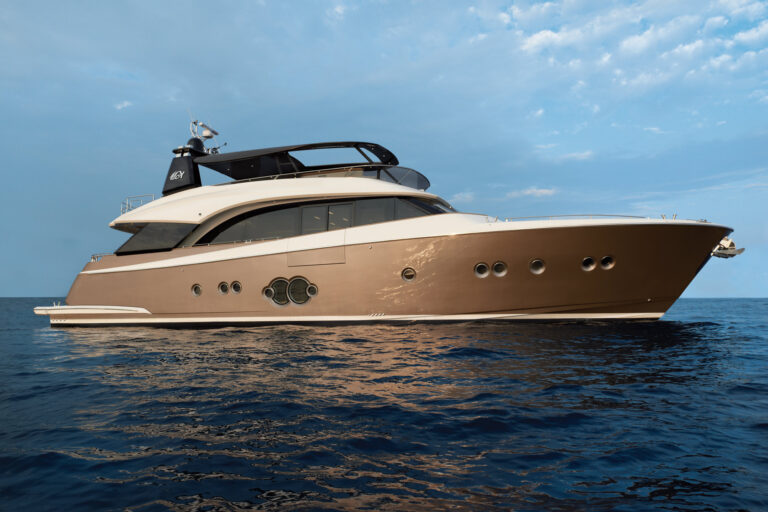
Class Warefare
It’s been quite a few years since I’ve written about yachting etiquette. Frankly, the sting of former dock mates railing at the hypocrisy of my past efforts put me off the subject. I’ll admit formal yachting is not for me, so I will skip the first chapter on blue blazers, crisp khakis and a proper cap. My focus is more the meat and potatoes of etiquette, the useful stuff — in simple terms, how not to look and act like an idiot on the water. Please read on, and if you find my suggestions personally insulting, by all means tear out the offensive section, frame it and post it near your helm.
Wake Unto Others
It is in poor taste to leave another vessel wallowing in your wake, no matter its shape, size or type. The courteous skipper signals his or her intentions when appropriate and slows when passing in close quarters. If you are “normally” a knucklehead, ignore any signage that suggests you resume “normal” operation. Ultimately, if the other fellow shows no intention of slowing, pour on the coals — just kidding!
Dress for the Occasion…Please!
It is no longer necessary to wear a blue blazer, khakis and a cap while yachting. However, clothing of some form is generally considered appropriate while aboard. While models look great in thongs and G-strings, most of the boaters I’ve run into do not. If you’re not satisfied with what you see when you look in the mirror, please do not share!
Close Relationships
The dock next to your boat should not look like Fred Sanford’s backyard. Your neighbors should not have to negotiate a path between grills, coolers, hoses and inflatable water toys. Yachtsmen do not paint their names on gangway signage or decorate the dock with potted plants, wind chimes and shell collections. If you do move, don’t start the engines at 7 a.m. and leave at 8 a.m.

Responsibility Waved
Although the traditional military-style salute is still used on occasion, the wave is in fashion and is now considered acceptable. A wave is not considered an appropriate signal following an act of stupidity (see “Wake Unto Others”). The casual display of this signal following such an indiscretion should be answered by extending the middle digit of the right hand.
Get the Hook
Fish-boat etiquette is a subject that deserves an entire series of books, although I doubt fishermen would read them. In brief, don’t dump fish waste in the garbage pail — recycle! Remove or pierce the eyes of filleted fish so that the remains sink and provide a meal for the crabs. Do not leave cockpit floodlights on all night, and turn down the damn music.
Be Nice to Your Crew
Stay calm and keep your voice down. There is no reason to let the world know by command that you’re intoxicated and that you run a hell-ship. Never shout commands at your crew, especially when there is a mishap for which you are at fault (my wife made me add this). If you need help docking, ask for it before you hit something.
Guest Appearance
Familiarize your guests with nautical custom before they arrive lugging a bulky steamer trunk down the dock. Remind them to leave high heels and black-soled running shoes ashore. Soft luggage can be easily stowed, and deck shoes will prevent wear and tear to your guests and your boat. And remind them to bring your favorite beverage.
It’s a Small World
Most folks anchor out for one of two reasons. They’re cheap, in which case they’ve selected the wrong sport, or they’re interested in privacy. Assuming the latter, it is poor taste to crowd others unnecessarily in an anchorage. If you must run the generator, find a spot downwind and share the ice! Remember, an “anchorage” is not a permanent home.
Dealing With Authority
There is nothing to be gained by pissing off people with badges and guns. If treated with respect, most water cops will give boaters a fair shake. Customs can be more difficult, given the times, but I have found success in anticipating the obvious questions and being prepared with the honest (correct) answers. “Yes, sir/ma’am” doesn’t hurt, and forget the jokes — they have no sense of humor!
Look the Part
A yacht should be fit for sea while under way. Lines and fenders should be stowed — not lying about the deck or trailing over the side. Dockside, a boat that looks in order and is tidy will earn the respect of those who are less ambitious. While cleaning with a hose, keep the water to yourself. Oldschool skippers never used a spray nozzle and always dried with a chamois.
Eating and Drinking Aboard
Grilling aboard is great, but “smoking meat” will not be appreciated by dockside neighbors. If your grilling utensils include a fire extinguisher, consider opting for a leaner cut or ordering pizza. If dinner runs late and your crew consumes more than their ration of loudmouth soup, do your neighbors a favor and take the party into the salon.
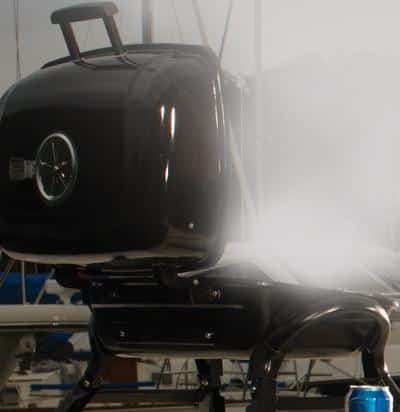
Curse of the Yellow Spot
I love dogs, but even those that live in a pocketbook are a bad fit on a boat. Discourage your pet from peeing on a shore-power pedestal, unless of course it is well grounded and the pedestal isn’t — just kidding! Does your dog bite? If so, give it something to chew on other than your neighbor’s ankle (perhaps the shorepower cord). Do not leave your dog baking in the cabin.
Heads Up
Do yourself a big favor and warn your guests that marine heads are by nature irritable and vindictive. Ask them — no, beg them — not to overfeed the head with toilet paper or tempt fate by offering it anything that is not on its approved diet. If fresh water is dear, suggest they limit use of it when showering.
Free-Spirited
If you are the sort that feels the world is your oyster, please consider this pearl of wisdom. Folks tied to a dock pay for the luxury of fresh water, electricity and sanitation. If you arrive in a trash-filled tender thirsting for water, check with the dockmaster before you borrow a hose or relocate refuse.
Flags and Pennants
If you are new to the sport, one sure way to show it is to fly the U.S. yachting ensign from the bow staff — or better yet, the American flag. If you are a local, the ensign should be flown from the stern staff of a power vessel. The bow staff is most often used for yacht club pennants. Fish-release flags or courtesy flags are not intended for permanent display.





